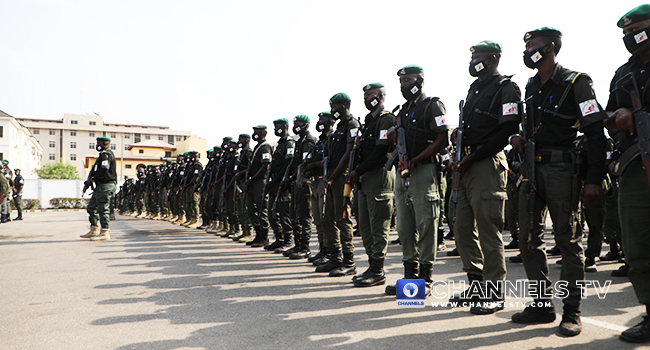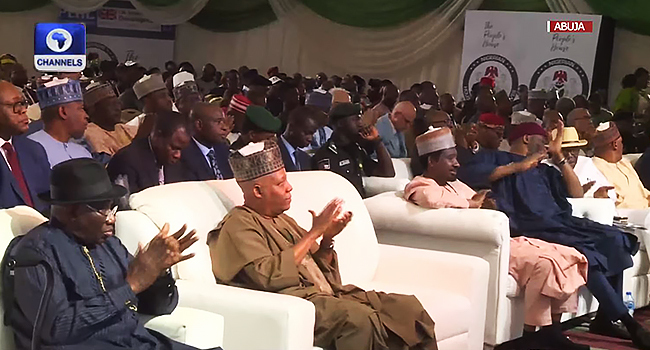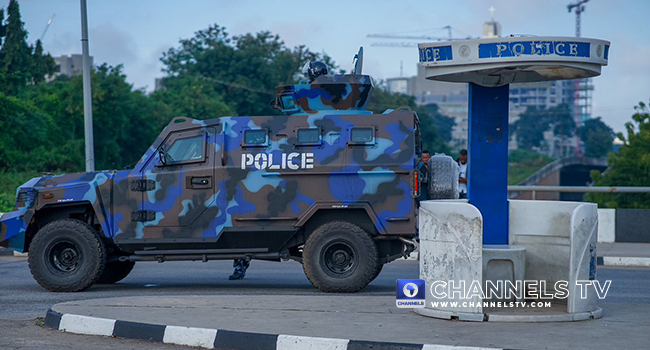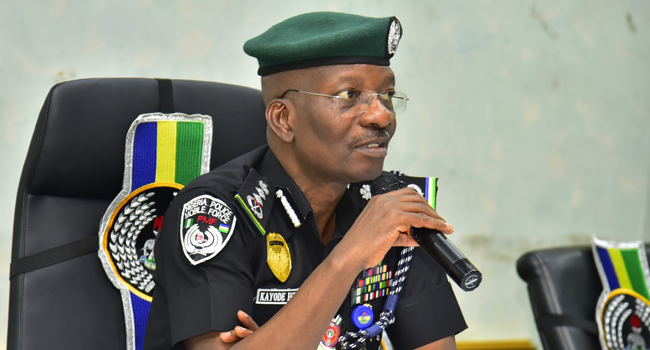With calls for state police gaining mileage across the country as efforts to ramp up security increase, opinions are divided among stakeholders including the Inspector General of Police (IGP) Kayode Egbetokun, President Bola Tinubu, and ex-presidents about the concept.
At a national dialogue on state police held in Abuja on Monday, the IGP faulted calls for its creation, differing from other personalities at the event.
Tagged ‘Pathways to Peace: Reimagining Policing in Nigeria,’ IGP Egbetokun at the event believed that the country is not yet “mature” for state police despite Nigeria’s myriad of security challenges.
‘Nigeria is Not Yet Mature’
“On the issue of state police, it is the submission of the leadership of the Nigeria Police Force (NPF) that Nigeria is not yet mature and ready for the establishment of state-controlled police,” the IGP, represented by AIG Ben Okolo, said at the event organised by the Speaker of the House of Representatives Tajudeen Abbas.
The IGP argued among other factors, that “there is the potential for abuse of power by the state political leadership.
“State governors could use the police forces under their control for political or personal gain and undermine human rights and security.
“There would also be a conflict of jurisdiction,” he said.
READ ALSO: Shettima, Jonathan, Abdulsalami, Others Attend National Dialogue On State Police
Collapse FRSC, NSCDC
He suggested other things to make the police better in securing the country.
“First, the Nigeria Security and Civil Defence Corps, Federal Road Safety to form a department under the Nigerian police,” he said.
According to the police chief, there is also a need to ramp up the yearly recruitment of officers. This, in addition to more training for police personnel, is essential to securing Nigeria.
Tinubu Committed To Police Reforms
But President Tinubu, represented by his Vice Kashim Shettima, says his administration is committed to reforming the country’s policing system for better security of the nation.
“The commitment of the administration of President Tinubu to reform the police force and enhance security at both the national and state levels is unwavering,” Shettima said.
“We view the outcomes of today’s deliberations as crucial inputs that will guide the government’s actions towards reforming the institution of the police and achieving a safer and more secure Nigeria.”
A New ‘Model’
Tinubu was not the only one who backed reforms of the country’s policing system. The Minister of Police Affairs Ibrahim Gaidam’s opinion on the matter was at variance with the IGP.
He argued that a decentralised police system would work better for the country and reduce the crime rate. According to him, a decentralised structure that allows each state to manage its police force under a framework that makes for coordination with federal agencies will be ideal for Nigeria.
“This model would involve recruiting, training, and equipping state police officers to meet professional standards while ensuring accountability and oversight mechanisms are in place,” he said at the Abuja Continental Hotel venue of the dialogue.
‘Not-Negotiable’
A former President Goodluck Jonathan also believes that despite the challenges that come with the concept, state police has become “non-negotiable”.
“The issue of the need for states to have their own police is not negotiable. There is no way we can continue this kidnapping that is going on in this country,” he said.
According to him, the spite of kidnapping and other crimes make state police a must-have in present-day Nigeria.
“Commercial kidnapping started around 2006, I don’t want to go into that history. But it started in the Niger Delta. Now it is all over the country,” the former president argued. “The only thing that can help us if we cannot stop it completely at least we reduce it to the barest minimum is for states to have their police.”
He went down memory lane, recalling that Nigeria is not new to state policing as it was practiced during the country’s military era.
“Why is it that the military scrapped it? It was because of the abuse and that is the area we should concentrate on,” Jonathan said.
Royal Role
While backing reforms in the policing system, a former Head of State Abdulsalami Abubakar brought a new dimension into the concept.
He wants traditional rulers to be part of the state police structure and believes their knowledge of the local environment will be handy in securing Nigeria.
“As a child growing up in the rural community, we see the role of the village heads where if a stranger enters a village the village head knows about that and through their communication the Emir is aware,” he said.
“As we are talking about establishing the state police, we should also look into the role of our royal fathers,” the former head of state said.
He also called on Nigerians to help in the battle against insecurity and be their brother’s keepers.
Neutral NASS
The organiser of the event and the Speaker of the House of Representatives Abbas Tajudeen said while the lawmakers do not have a position on the matter, the National Assembly will facilitate conversations about state police.
“The House of Representatives is aware of the divisive and polarising arguments surrounding the issue under review,” the speaker said.
“Let me state categorically that the House and indeed the National Assembly do not have a fixed position. Our role is to facilitate a dialogue and generate consensus.”




